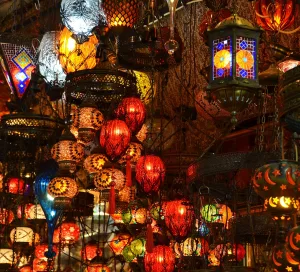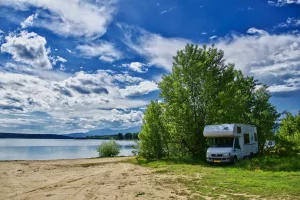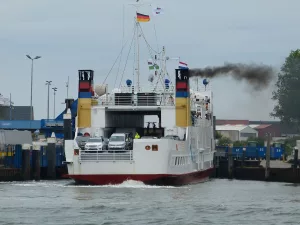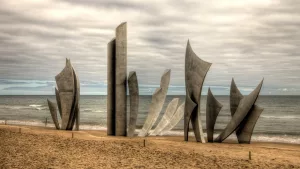Travelling to Türkiye - Travel Hub
Embarking on a road trip to Türkiye during the winter months is not just an adventure; it’s a strategic move for those navigating the post-Brexit travel landscape. As Türkiye lies outside the Schengen Area, travelling to Türkiye presents a golden opportunity for travellers affected by the 90/180 day rule, allowing you to bask in the winter sun in your motorhome without impacting your Schengen visa allowance.
Taking a visit to Türkiye to explore its radiant winter landscapes; from the azure waters of the Mediterranean coast to the historic wonders of the Anatolian plateau, all while staying within visa regulations. With your motorhome as your haven, you can delve into Türkiye’s rich cultural heritage, bustling bazaars, and unparalleled culinary scenes at your leisure.
If you want to find out about ‘Driving in Turkey’, from the speed limits, police checks and how to approach roundabout driving (yes, the rules are different for roundabouts!) then we have everything you need to know to have a successful road trip.
Whether it’s unwinding in Pamukkale’s thermal baths which are just incredible, witnessing Cappadocia’s fairy-tale chimneys against a crisp winter backdrop, or strolling through Istanbul’s less crowded streets, Türkiye offers a unique blend of adventure, relaxation, and cultural immersion. The historical buildings along the coast line are just phenomenal.
A visit to Türkiye under the winter sun is more than a journey—it’s a smart way to maximise your European travel, ensuring every moment is filled with discovery and every stop tells a new story, all within the comfort of knowing you’re navigating the visa rules smartly.
Turkey Travel Hub - Jump To
Where is Türkiye?
Türkiye borders Greece and Bulgaria in the north west. To the north is the Black Sea and Georgia to the north west. On the east is Armenia and Iran and the south is Iraq and Syria. So it has several neighbouring countries which are in a more unstable part of the world.
Key Fast Facts for Travelling to Türkiye
Language
Turkish is the official spoken language, although you may find Arabic in some of the more eastern areas
Currency
The Turkish Lira is the official and legal currency. In high tourist places, you may see prices in Euros.
Schengen
Türkiye is outside of the Schengen so makes it a good place to get outside for the 90/180 rule.
Time Zone
Turkiye is in the Central European Timezone, which is UTC +3 year round.
ATM & Credit Cards
ATM's are everywhere and cards accepted widely. The cash machines charge for withdrawals.
Plugs and Voltage
Type C and Type F Plug (earthed round pin). 230 voltage and 50 Hz.
Sim Cards
We use Turkcell. Excellent coverage, easy App to top up as required.
Visa
UK travellers need a passport with 6 months travel left. 90 Days of travel allowed. High fines are common for over stays.
Pets
Must be microchipped. Must have Rabies injection (3 - 12 months). Titer Test. Animal Health Certificate.
Health
GHIC does NOT cover you in Turkiye. Travel Insurance is advised.
Motorhome Parking
Wild camping technically is not allowed. It is not enforced at all even by officials. Winter easier than summer.
Turkish Roads
Turkish roads are absolutely fine. The main D400 on the coast is in far better condition than most UK roads.
Local Foods
Kebap, Meze, Baklava, Corba (meaning soup), Lahmacan
LPG Available
LPG is available at nearly all the petrol stations and really good value (40p litre).
Emergency Numbers
Dialing Code - +90
Ambulance - 112
Police - 155
Forest Fire - 177
Coast Guard - 158
Motorhome/ Car Insurance
Not likely to be covered. We got it on the border. £150 for 3 months.
Female Travel
Very safe for female travellers. I have been in the motorhome and solo travelling.
Best Travel Months
Winter for some winter sun, shoulder seasons for warm weather and less crowds.
Tipping
Around 10% is really well received. Turkish people are on extremely low salaries, so it really gets a smile.
Airports
The key airports are Istanbul (north), Antalya (South), Izmir (west) and Cappodoccia. There are more.
Why Visit Türkiye?
Travelling to Türkiye in the winter months presents a unique opportunity to explore the country’s stunning coastlines under a different light, especially south of Izmir where the weather remains mild and inviting. While many travellers flock to Türkiye during the bustling summer months, winter offers a serene and warm retreat along the Turkish Riviera, including the picturesque stretches from Antalya to the Datça Peninsula. This season allows you to enjoy the natural beauty and historical sites without the crowds, giving you a more authentic experience of Turkish hospitality and culture.
The southern coast of Türkiye, with its crystal-clear waters and rugged mountains, retains its charm and warmth, making it perfect for outdoor activities like hiking, exploring ancient ruins, and enjoying leisurely strolls on the beach. The winter sun casts a magical glow over the landscapes, offering breath-taking sunsets that are not to be missed.
Moreover, winter in Türkiye means you can savour the local cuisine in a more relaxed setting, with the chance to engage more deeply with locals who have more time to share stories and traditions. From the vibrant markets of Antalya to the serene beaches of Fethiye, travelling to Türkiye in winter lets you uncover the quieter, yet equally enchanting side of this beautiful country. Whether you’re seeking a peaceful escape by the sea or an adventure in mild weather, Türkiye’s southern coast in winter is an unbeatable destination.
Is Türkiye Safe?
Yes, it is perfectly safe to be travelling in Türkiye as of 2024. As always though, things could change quickly in any country, so you should just check before you travel to make sure that nothing has changed before your visit to Türkiye.
One of our Turkish road trips takes you in the regions of the Syrian border, but you can drop some of these stops if you feel less comfortable. The closest we get is around 20km. The UK Government warning states no travel within 10km of the Syrian border.
If you want to read about my visit to Syria and also how to travel to Syria, it makes for interesting reading!
Download our Handy Road Trip Planner
Use our handy ready made PDF planner to help you plan your trip. We created a 9 day planner to use to plan a 1 week trip. Simply print out more copies for each week of your travels. Capture everything you need from your start and end points to where you will stay. There is space to write all the things you want to see and more. Plenty of room for jotting down notes as you plan too.
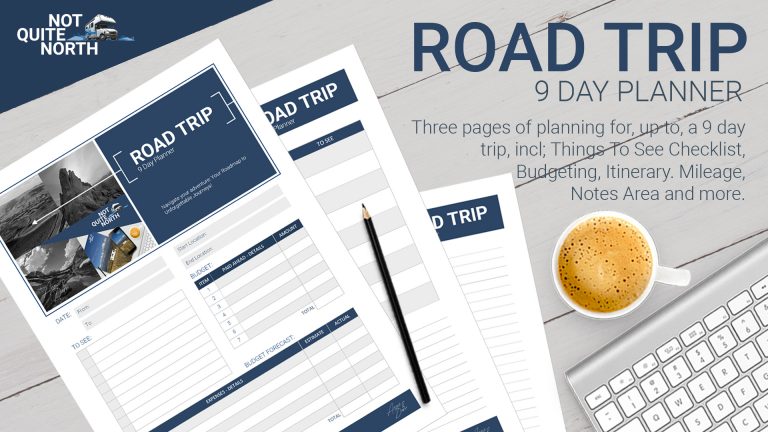
*Road Trip Planner
*By downloading our planner, you give us permission to send you our newsletter. We send this approx every 6 – 8 weeks.
When to Visit Turkiye?
This period is ideal for travelling in Croatia if you prefer mild weather without the summer crowds. The temperatures are comfortable, perfect for exploring the coast and cities. Nature is in full bloom, making it a great time for outdoor activities like hiking.
Türkiye in Spring
(April to May): This is one of the best times to visit. The weather is mild, the crowds are fewer, and nature is in full bloom. It’s perfect for outdoor activities, exploring historical sites, and enjoying the countryside, especially in places like Cappadocia or the Aegean and Mediterranean coasts.
Türkiye in Summer
(June to August): Summer is hot, especially in the inland areas like Ankara and Cappadocia, but it’s the best time to hit the beaches along the Aegean and Mediterranean coasts, like Bodrum, Antalya, and Fethiye. The downside is that it’s peak tourist season, so expect crowds and higher prices.
Autumn in Turkiye
(September to November): Much like spring, autumn brings milder weather and fewer tourists, making it a great time to visit. The sea is still warm enough for swimming in early autumn, and the changing colours of the landscape can be quite beautiful. It’s also an excellent time for cultural festivals and exploring the cities without the sweltering heat.
Winter in Turkiye
(December to March): Winters can be cold, especially in the interior and eastern parts of the country, but if you’re into winter sports, places like Uludağ and Erciyes offer great skiing. The coastal areas are milder, and while it might be too cold for swimming, exploring cities like Istanbul without the crowds can be quite enjoyable. Plus, accommodation prices are at their lowest.
If you’re living a nomadic lifestyle, spring and autumn might offer the best balance of comfortable weather and scenic beauty for both motorhoming and backpacking, allowing you to explore a wide range of environments without the extremes of summer heat or winter cold. Plus, these seasons can provide a more authentic experience of Türkiye, away from the peak tourist periods
Traditional Foods in Türkiye
Türkiye’s cuisine is a rich blend of flavours influenced by both its heritage and its geography. If you try and buy the Turkish Delight here, they say it is just for the tourists! It’s not really a thing. So here are the top 5 national dishes that are a must-try.
Savoury Foods
Kebap (Kebab): Perhaps the most famous Turkish dish, kebabs come in many varieties, including the iconic döner kebab (meat cooked on a vertical rotisserie) and the Adana kebab (a spicy minced meat kebab named after the city of Adana).
Meze: A selection of small dishes served as appetizers or a meal on its own, meze can include a variety of items such as hummus, stuffed grape leaves (dolma), eggplant salad, and much more, often accompanied by flatbread.
Çorba (Soup): Soup is a staple in Turkish cuisine, with varieties like lentil soup (mercimek çorbası), tomato soup (domates çorbası), and the hearty tripe soup (işkembe çorbası) being particularly popular.
Lahmacun: Often dubbed as Turkish pizza, lahmacun is a thin piece of dough topped with minced meat (usually beef or lamb), vegetables, herbs, spices, and then baked.
Sweet Foods
Baklava: This sweet, rich dessert made of layers of filo pastry, filled with chopped nuts, and sweetened with syrup or honey, is a favorite in Türkiye and is often served during celebrations and holidays.
These dishes reflect the essence of Turkish cuisine, known for its diverse flavors and rich history.
Essential phrases to use in Turkiye
We figured it would be useful to have some core phrases to get by in the restaurants of cafe’s – speaking just those core words show a little respect for the people and the country. English is not a widely spoken Language as soon as you get out of the main tourist places. Google Translate really is your friend in Türkiye!
- Hello – Merhaba
- Thank you – Teşekkür ederim
- Have a good day – İyi günler
- Goodbye – Hoşça kal
- The bill please – Hesap, lütfen
- Have a good evening – İyi akşamlar
- My motorhome (caravan) has broken down – Karavanım bozuldu (Turkish will refer to your motorhome as a caravan)
We hope you enjoyed this article and found it useful. If you found it useful, please do share with others using the share buttons below. If you think we have missed something – please do let us know. We read all our emails!


